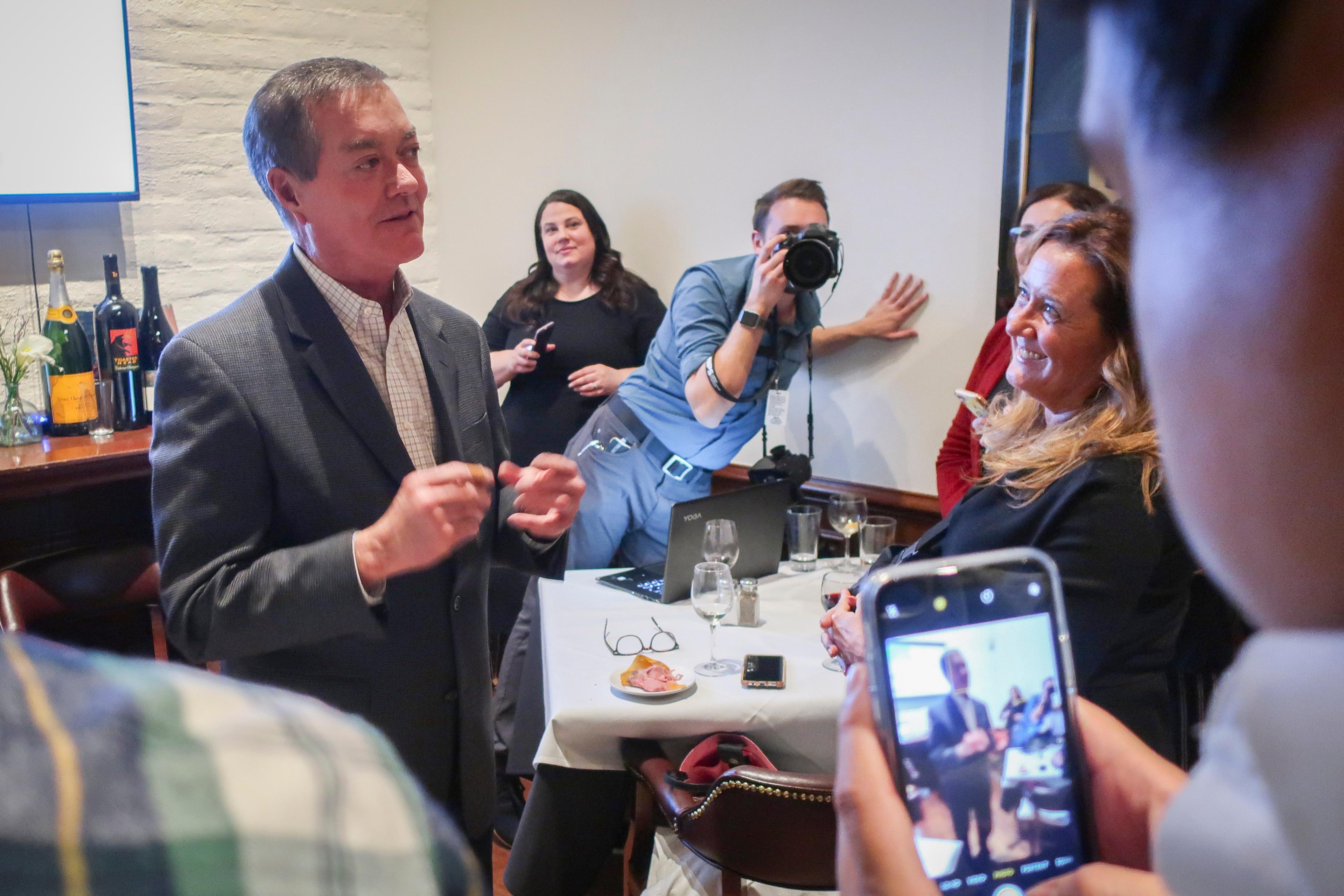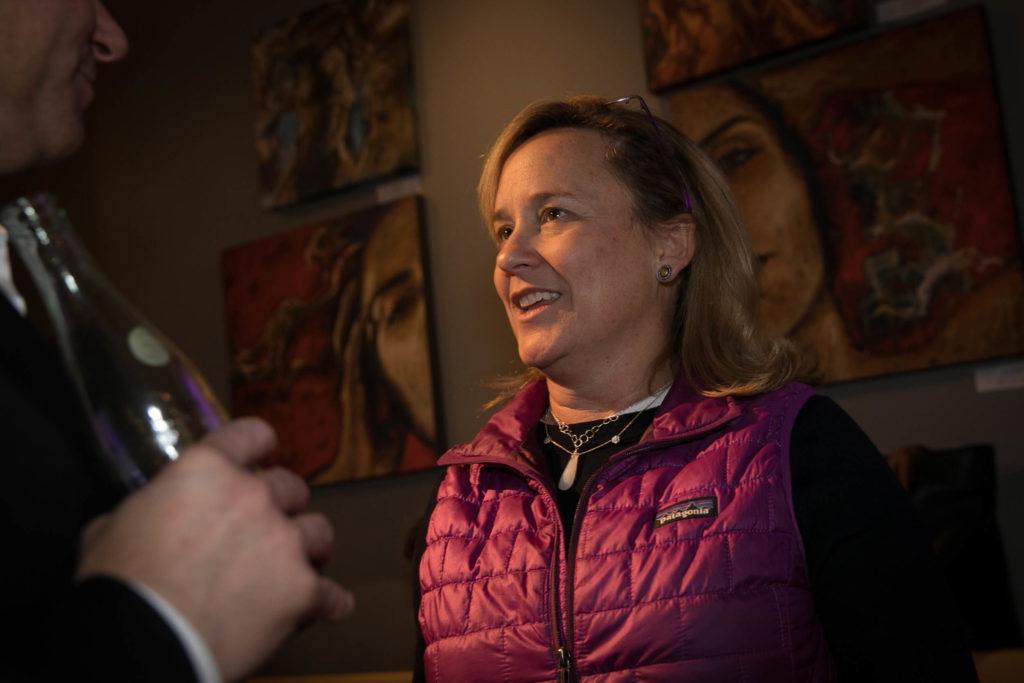
Proposition CC, which would have allowed the state to keep money that would normally be returned to taxpayers because it exceeds revenue caps set in the Taxpayer’s Bill of Rights, has failed, according to the Associated Press.
The measure was trailing by more than 100,000 votes when the AP called it shortly after 8:30 p.m. on Tuesday.
"This is a mandate to the state legislature that they damn well better start prioritizing roads and education without raising our taxes," Amy Oliver Cooke, executive vice president of the Independence Institute, told a anti-Prop CC party at the Great Northern Tavern in the Denver Tech Center.
CC was not the only challenge to TABOR on Cooke's mind Tuesday night: The Colorado Fiscal Institute, a liberal think-tank, is pushing for a complete repeal of TABOR as soon as next year.
"I hope they bring on full repeal so we can smack that into the ground and end that talk right now," Cooke said. "I think a full repeal will be absolutely crushed."
In a statement, Carol Hedges, executive director of the Colorado Fiscal Institute, said even if Prop CC had passed, it wouldn't have done enough to "backfill decades of underinvestment in our transportation and education systems."
"If we truly want to build a state that works for everyone then we need to amend the constitution," Hedges said.
About 1.2 million votes have been counted in that race so far. Earlier Tuesday Magellan Strategies, a Republican-leaning polling firm, reported that more than 1.2 million ballots had been returned, and projected that would grow to around 1.4 million.
The mood at the anti-CC party was celebratory from fairly early on.
"We did polling and we know that taxpayers and voters love the Taxpayer's Bill of Rights," Cooke said.
The measure’s failure amounts to a significant victory for supporters of the Taxpayer’s Bill of Rights. That constitutional amendment requires voter approval for all tax increases, sets a revenue limit for every government in the state and requires any surpluses be returned to taxpayers.
Many local governments have successfully asked voters to let them keep those surpluses. But backers of Proposition CC weren’t able to convince enough voters to allow the state to do that. They had promised that future refunds from the state would have gone to transportation, K-12 and higher education.
“It is a sad state that Colorado has the number one economy in the country and we're at the very bottom of the barrel for funding these things," K.C. Becker, Proposition CC's author and the Democratic speaker of the Colorado House, said late Tuesday. "If this wasn't the answer, really I just hope Coloradans will come together to figure out what is the answer that they'll support.”

Gov. Jared Polis, a Democrat, noted in a statement that Coloradans have now rejected several different mechanisms meant to fund transportation, including a tax increase, bonding and now Proposition CC.
"...it’s clear that voters want elected officials to do more with their existing tools and legal authority," Polis said. "I look forward to working with Republicans and Democrats to develop new and innovative approaches to respond to the need to reduce traffic and congestion.”
Scott Wasserman, president of the Bell Policy Center, said low turnout was key to CC's demise. And he said it's failure means Coloradans will have to grapple with major questions, again.
"The reality is that the problems we are trying to fix with CC aren't going away today," he said. "We still have to figure out at the end of the day how we're going to fund our schools, how we're going to declutter our roads, how we're going to lower college tuition."

The state was forecasted to refund $310 million to voters in its next budget, or about $37 per taxpayer. The state has issued such refunds eight times since voters passed TABOR in 1992.
- Check in on Proposition DD
- Check in on statewide results
- Check in on Denver's elections
State lawmakers, with some help from the judiciary, have steadily loosened the fiscal handcuffs the measure’s author meant it to be. For example: TABOR bans long-term borrowing without voter approval, so state and local governments now routinely use a different mechanism, called certificates of participation that achieve the same result as traditional bonds. And entire departments, like Colorado Parks and Wildlife, are now TABOR-exempt enterprises.
But perhaps the most significant blow to TABOR came in 2005, when voters approved Referendum C. That measure was sold as a five-year "TABOR-timeout" and eliminated a provision that prevented state revenues from rebounding quickly after a recession.
Then-Gov. Bill Owens, a fiscally conservative Republican, publicly backed Referendum C. Back then, the state was in dire fiscal straits. But this time around, he opposed Prop CC and joined opponents at their party Tuesday.
"The state now is awash with revenue. This was a permanent, deep de-Brucing of the state," Owens said. "I just didn't think the state needed the money."
CPR's Bente Birkeland also contributed to this report.









